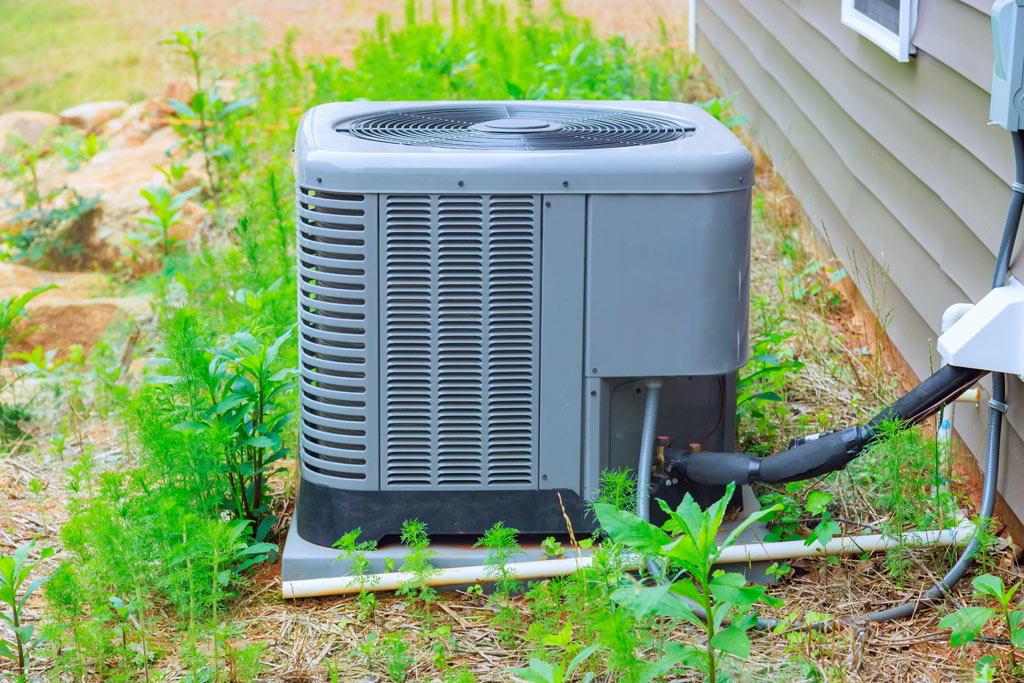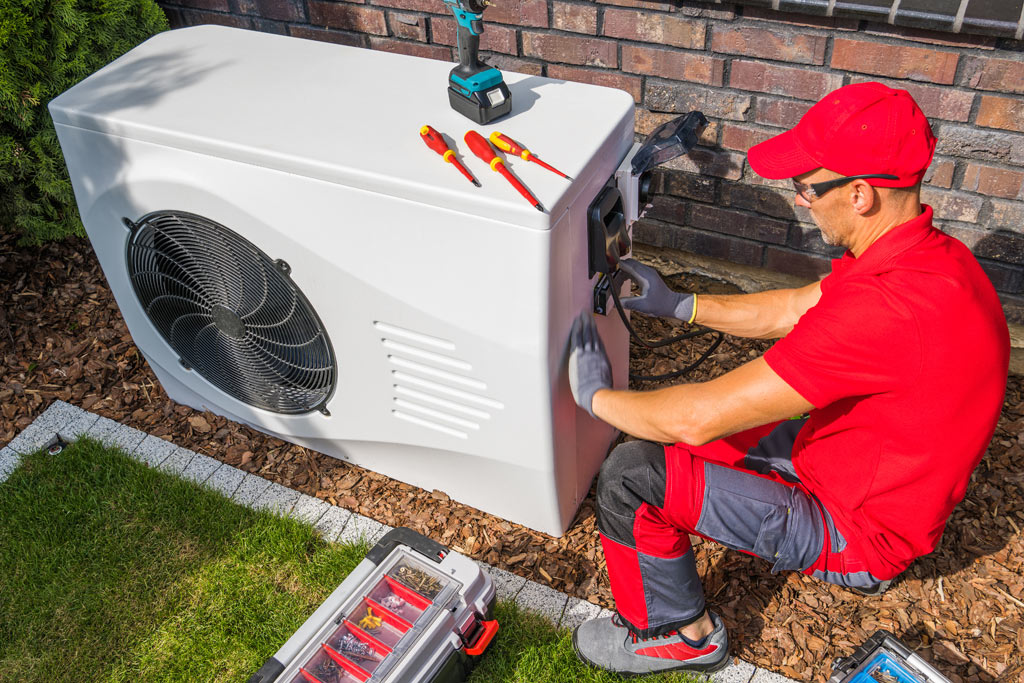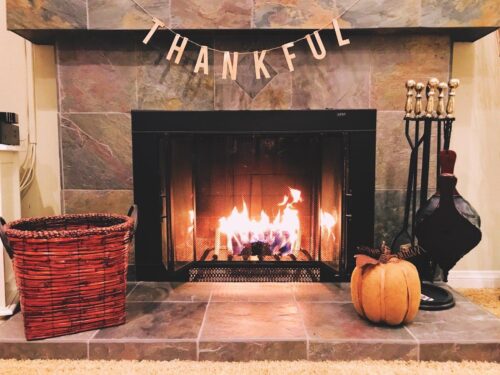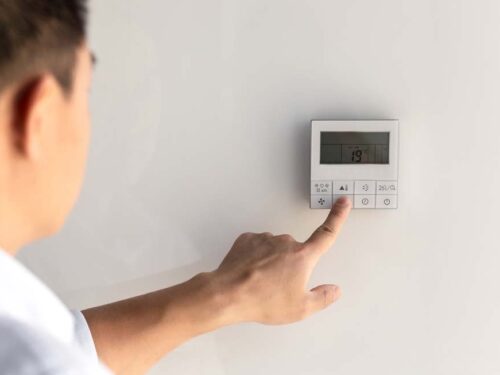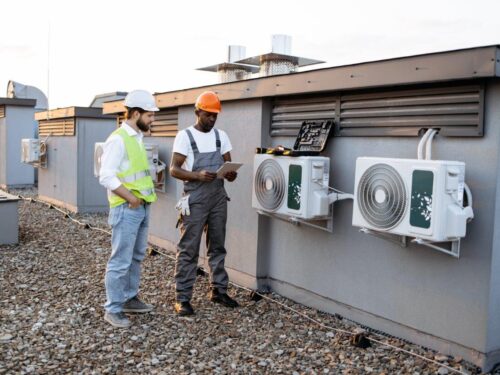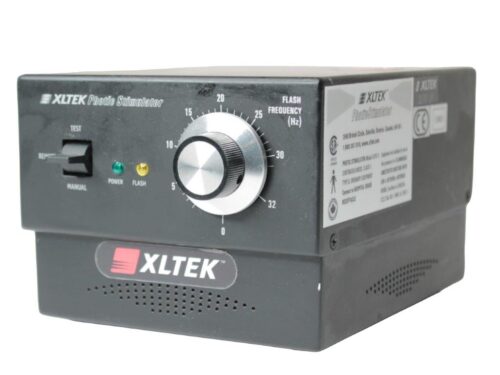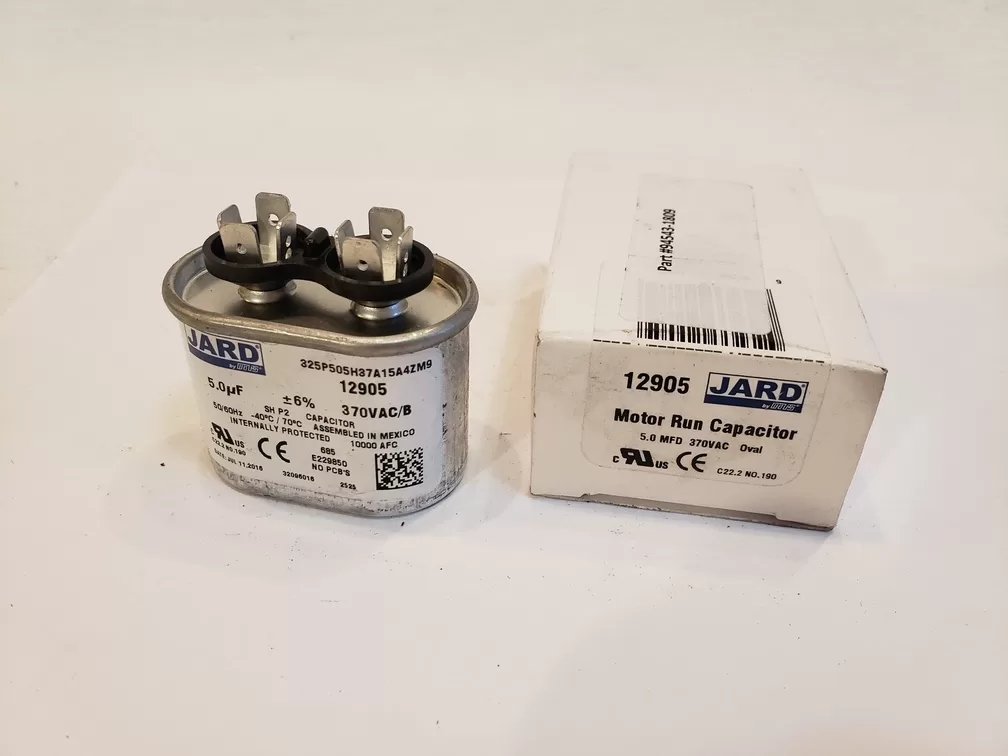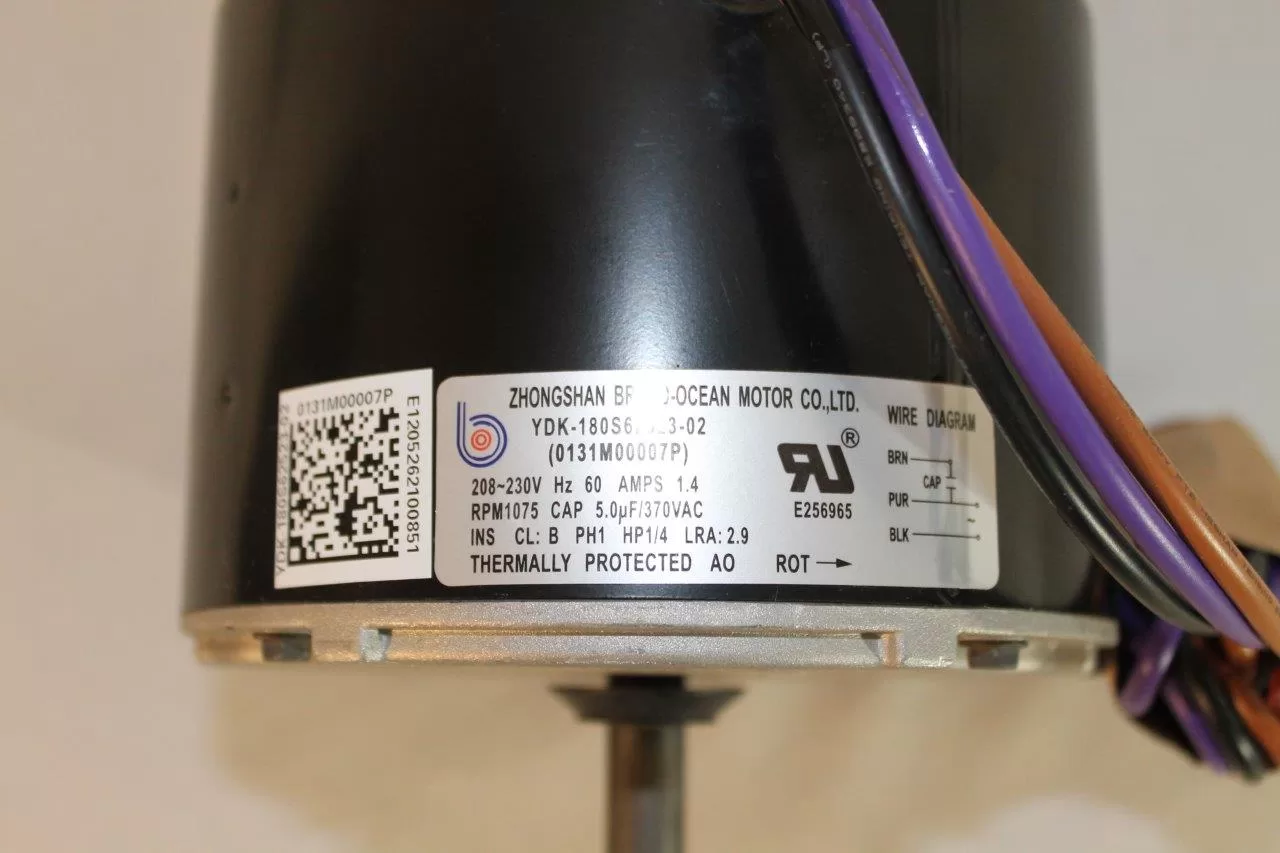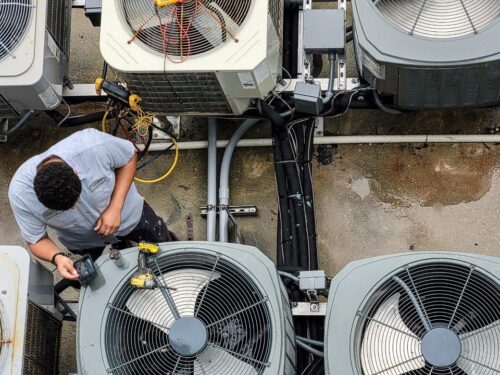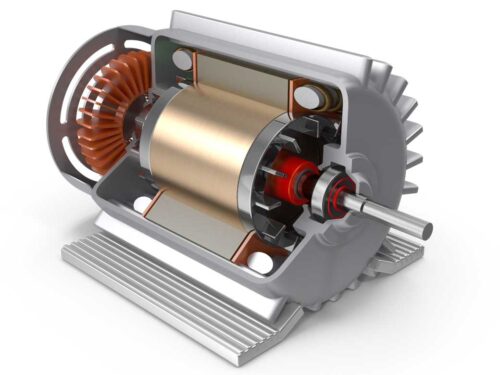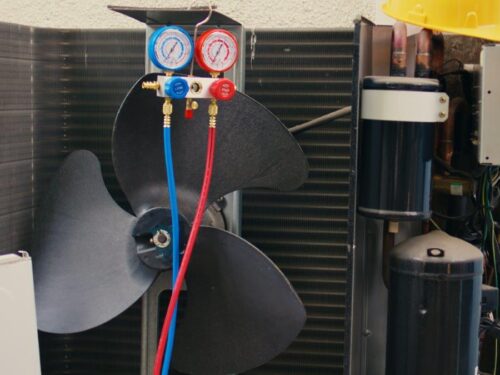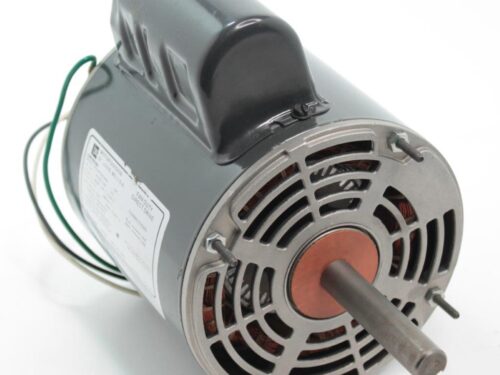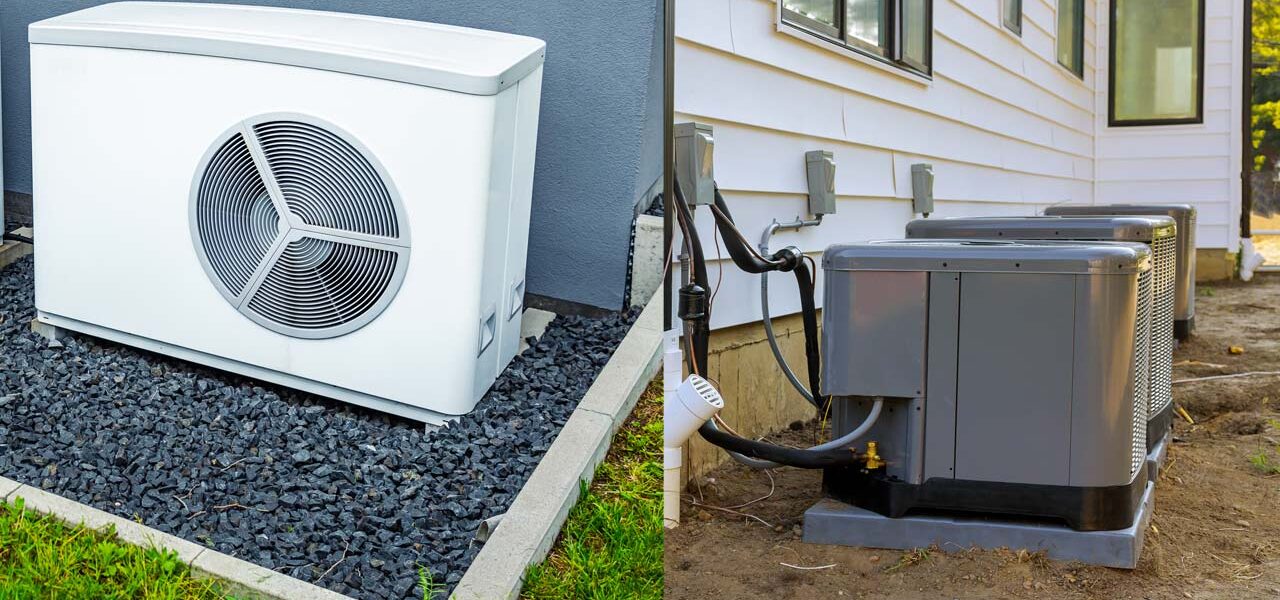
In my opinion, a lot of people get confused between heat pumps and air conditioners. Both systems can cool a home, but they operate differently and have distinct features.
Basic Function of an Air Conditioner
An air conditioner (A/C) is a system that cools indoor spaces by extracting heat from the air inside a building and releasing it outside. It uses a refrigerant to absorb the heat, which then goes through a series of components – including the compressor, condenser, and evaporator – to cool down the air. The cooled air is then circulated back into the room. AC units are generally used in hot weather to keep indoor spaces comfortable. They only provide cooling, so they work best in areas with warmer climates or when combined with a separate heating system.
How a Heat Pump Works
Now, a heat pump is a bit different. It does the job of both heating and cooling. Think of it as a two-way system. In cooling mode, it works just like an air conditioner, moving warm air from inside the house to the outside. But when the seasons change, and the weather gets colder, the heat pump can reverse its function. In heating mode, it pulls heat from the outdoor air (or the ground, in some models) and brings it inside to warm up the space. This unique feature makes heat pumps versatile and efficient, especially in mild climates.
Key Differences Between the Two
I believe the main difference is that an air conditioner is built for cooling only, while a heat pump can cool and heat. Heat pumps work best in regions where temperatures don’t drop too low. When temperatures get very cold, they may need some backup heating, often an electric or gas furnace, to maintain a comfortable indoor temperature.
Another important difference is energy efficiency. In general, heat pumps tend to be more energy-efficient than traditional heating methods. Because they move heat rather than generate it, they can save homeowners money on their energy bills.
Implementation of a heat pump and an air conditioner
From my experience, choosing between a heat pump and an air conditioner depends on several factors, including climate, energy costs, and personal preference. Here’s how each system is typically implemented:
- Installing a Heat Pump: Installing a heat pump requires more planning than an air conditioner, especially if you’re using it for both heating and cooling. The system usually includes an indoor and an outdoor unit, similar to an air conditioner. In colder climates, I always recommend installing a backup heating system, such as a gas furnace, to help during extreme cold. Many homeowners like the versatility of a heat pump, as it reduces the need for two separate systems (AC and furnace).
- Installing an Air Conditioner: Installing an AC unit is generally more straightforward, as it only handles cooling. It’s ideal in areas where summer temperatures are high, but winters are mild. The installation involves setting up the outdoor condenser and indoor air handler, ensuring proper ductwork and insulation to maximize efficiency. I’ve found that homeowners in warmer regions, or those who already have a separate heating system, often prefer a standalone AC.
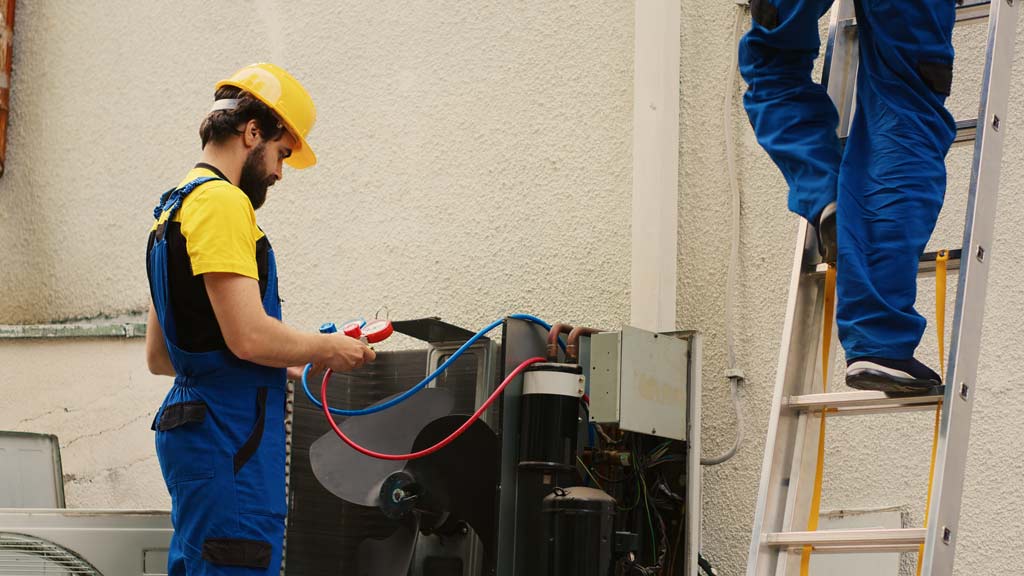
Heat Pump or A/C: what to use and when?
- Heat Pump in Mild Climates: Heat pumps are ideal in areas with mild winters. In regions like the Southeast United States, where temperatures rarely dip too low, a heat pump can meet both heating and cooling needs effectively. This setup minimizes the need for a separate furnace, making the system both space- and cost-efficient. I think it’s a great solution for homeowners in these climates looking to simplify their HVAC setup.
- Air Conditioners in Hot Climates: For areas with extremely hot summers and mild winters, air conditioners are often the best choice. For instance, in the Southwest, summers can reach well over 100°F. Air conditioners handle this intense heat well, especially when combined with a separate heating system for the winter months. I often see homeowners in these areas opting for an efficient AC system paired with a furnace or electric heater to manage the cooler months.
- Dual-Fuel Systems in Colder Climates: In very cold regions, a dual-fuel system (heat pump combined with a gas furnace) can be the best of both worlds. The heat pump provides efficient heating until the temperature drops too low, at which point the furnace kicks in. This setup ensures reliable heat regardless of the outdoor temperature. It’s an option I often recommend to homeowners who want the energy efficiency of a heat pump but need the backup reliability of a furnace in cold weather.
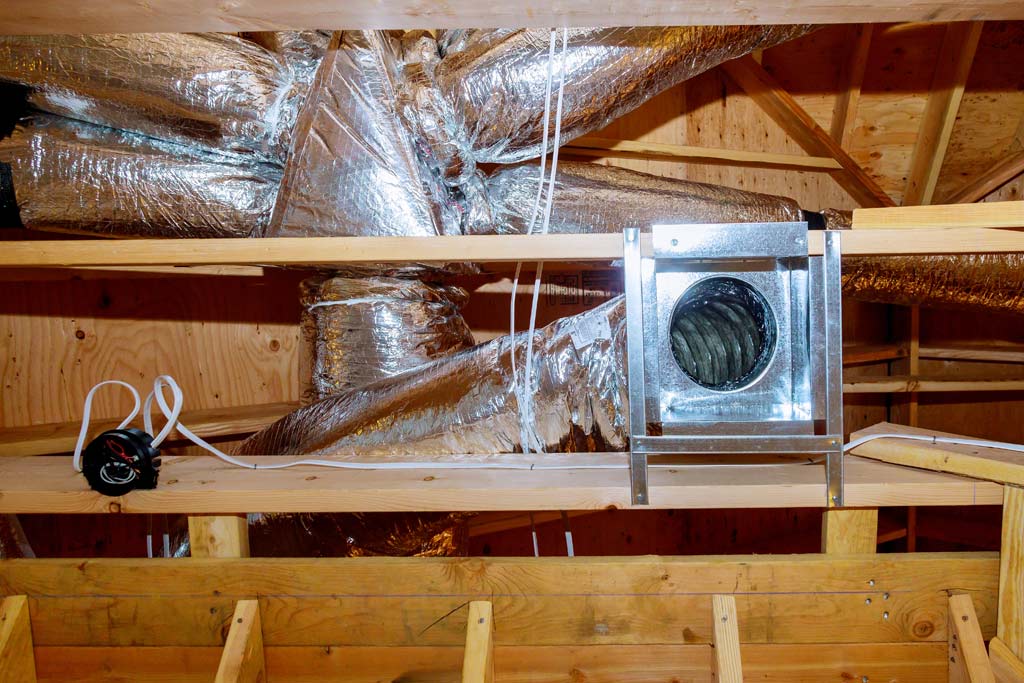
Benefits of Each System
- Benefits of a Heat Pump:
- Energy Efficiency: In my opinion, one of the best features of a heat pump is its efficiency. Because it transfers heat instead of generating it, a heat pump uses less electricity for heating, especially in mild temperatures.
- Lower Operating Costs: Since it’s an all-in-one system, a heat pump often has lower operating costs compared to running separate heating and cooling systems. This means fewer components to maintain and service over time.
- Environmental Impact: Heat pumps tend to have a smaller carbon footprint, which is appealing to environmentally-conscious homeowners. They produce fewer emissions than many traditional heating systems.
- Benefits of an Air Conditioner:
- Durability in Hot Climates: I believe AC units are hard to beat in consistently hot climates. They’re built to handle high temperatures for long periods, providing consistent cooling when needed most.
- Lower Upfront Cost: AC units generally cost less upfront compared to a full heat pump system. For homeowners who already have a separate heating source, adding an AC can be a budget-friendly option.
- Simple Maintenance: With fewer components, air conditioners are often easier and cheaper to maintain than a heat pump, especially in areas where they don’t need to run year-round.
In the end, the choice between a heat pump and an air conditioner boils down to climate, personal needs, and budget. In milder climates, a heat pump offers both heating and cooling in a single efficient unit. For homeowners in hotter regions, an air conditioner, combined with a separate heating system, provides reliable and effective cooling. I think understanding these differences can help homeowners make the right choice, saving money and ensuring comfort all year long.
If you’re considering a new HVAC system, it’s best to consult a professional who can assess your specific needs and recommend the most efficient and practical solution for your home.
